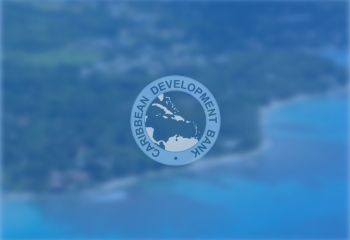CDB Strengthening its Response to Issues Affecting Caribbean Indigenous Peoples

The Caribbean Development Bank (CDB) is deepening its engagement with Indigenous Peoples across the Caribbean and strengthening its response to issues affecting these communities, Vice-President (Operations), Mr. Isaac Solomon, revealed while addressing the Bank’s Indigenous Peoples’ Framework Forum in Saint Lucia last week.
The event, which marked the conclusion of the CDB’s 53rd Annual Meeting, sought to create a space to bring the matters affecting Indigenous Peoples to the forefront of the regional development agenda. It focused on pathways for facilitating greater economic empowerment, voice, and agency to First Peoples and Tribal Peoples as well as countering misconceptions and inherent biases that impact how these stakeholders are perceived.
The Forum brought together a range of representatives of Indigenous communities from across the Caribbean region, including youth, women, older persons, leaders in government, and civil society.
“Our attempt to include more of our Indigenous Peoples in today’s conversation by having three satellite locations (in Dominica, Guyana, and Suriname) is a testament to how we are resetting our approach to citizen engagement by meeting our people where they are. It is a sure way of ensuring we do not leave anyone behind,” Mr. Solomon said.
According to the World Bank, Indigenous Peoples make up approximately six percent of the global population. However, worldwide, they account for about 19 percent of the extremely poor. They have less access to quality education, formal employment, and financial services and are among those more likely to be impacted by natural hazards. Countries within the Caribbean with notable numbers of Indigenous Peoples include Belize; Dominica; Guyana; Saint Vincent and the Grenadines and Suriname.
Noting that despite strides being made to promote inclusion across development work and policy advocacy, the views of Indigenous Peoples were not being adequately considered, Mr. Solomon said the CDB was working towards deeper engagement.
“Today is symbolic of CDB’s commitment to helping to address this more going forward. With this Forum, we recommit to remain closely attuned and recognise that as a multilateral development bank, we have a responsibility to support the upholding of the rights of Indigenous Peoples, to promote social justice and fairness in development in our region,” he said.
The CDB Vice-President applauded Indigenous Peoples for being major stewards of cultural diversity in the region despite situations that threaten the preservation of their traditions and way of life, and highlighted actions the CDB had taken to promote Mayan women’s economic empowerment in Belize through capacity building, community scholarship, and intellectual property protection of indigenous content, through its Cultural and Creative Industries Innovation Fund.
He also pointed out the need to put greater investment in the protection of assets and resources, which includes languages, cultural practices, and approaches to living and respecting Indigenous People’s interaction with Mother Earth and the positive impact these actions can have on climate change.
“These are inextricably linked to our past and are highly relevant to us today, and what we can accomplish going forward. There are so many benefits for our countries if there is high respect for our lands, our water, and the rights of indigenous people to be consulted and involved in climate policy and climate action,” Mr. Solomon said.
As one of the immediate activities following the Forum, CDB will provide proposal writing training for community leaders with the Caribbean Disaster and Emergency Management Agency and an online course on community engagement that includes a module on Protocols for Engaging Indigenous Peoples. The CDB and the International Trade Centre are also launching the She Trades Caribbean Hub to help create market opportunities for indigenous and other groups of women. Other programmes ongoing and activities include the Bank’s flagship poverty reduction programme, the BNTF, which invests in community-led development, and the Building Resilience and Adaptive Capacity to Climate Change and Disaster Risks in the Kalinago Territory project that is supported by Global Affairs Canada.
“Despite a long track record of working in indigenous communities, we want to engage more, document the lessons and use them to shape responses driven by data, while encouraging more development institutions to do the same,” Mr. Solomon concluded.


